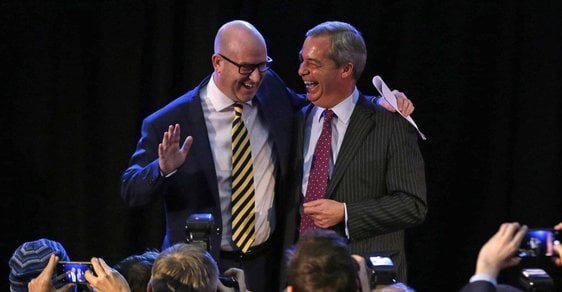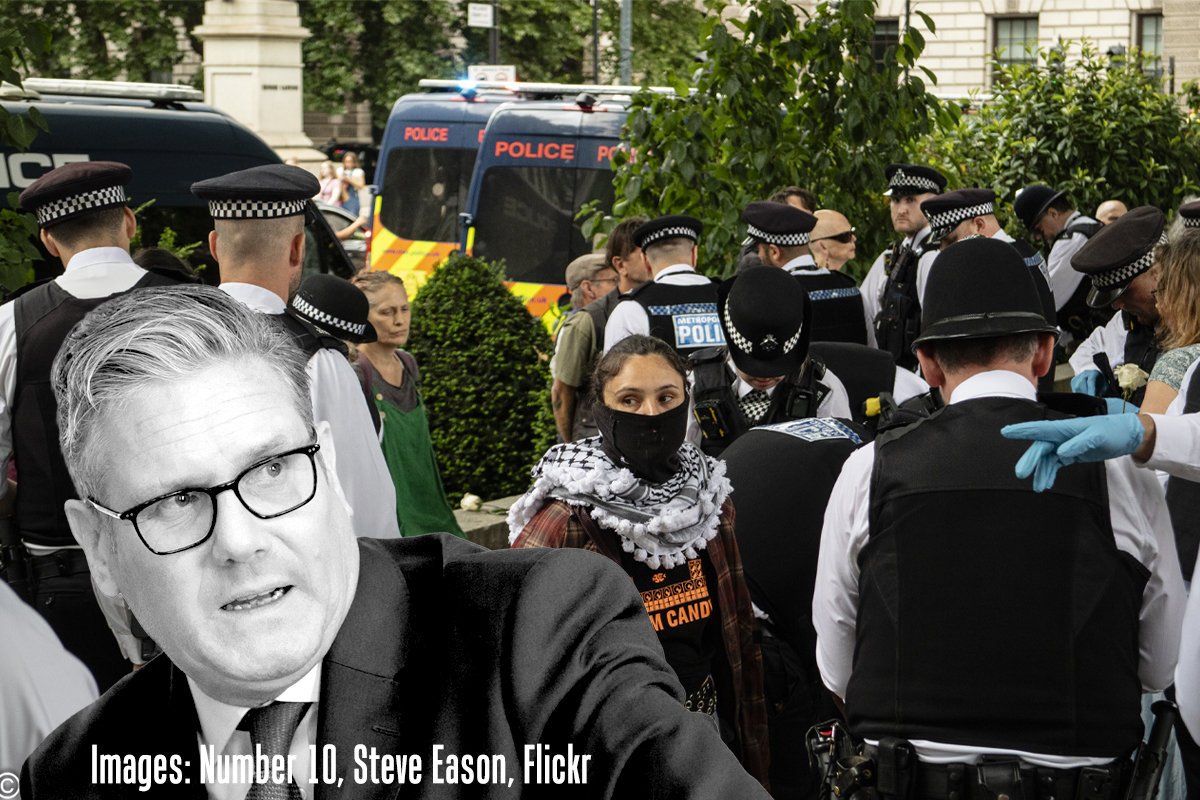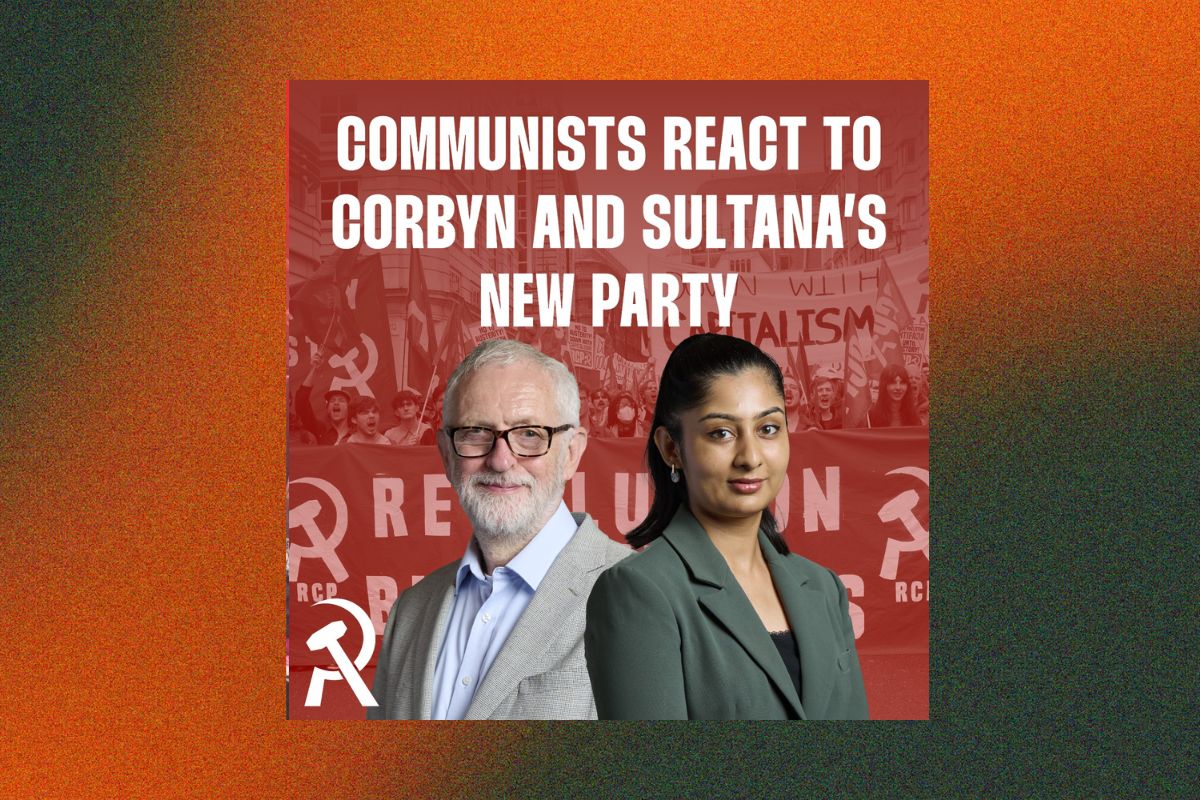In just under a week, on 23rd February, two by-elections will take place in the constituencies of Stoke-on-Trent Central and Copeland. With no clear left alternative provided by the Labour Party, UKIP are threatening to eat away at the Labour vote, particularly in Stoke. Kelly and Joe from the Sheffield Marxists examine the factors behind UKIP’s potential success.
In just under a week, on 23rd February, two by-elections will take place in the constituencies of Stoke-on-Trent Central and Copeland. With no clear left alternative provided by the Labour Party, UKIP are threatening to eat away at the Labour vote, particularly in Stoke. Lilly and Joe from the Sheffield Marxists examine the factors behind UKIP’s potential success and the way forward for Corbyn’s Labour.
Following his election as UKIP leader at the end of last year, Paul Nuttall has returned to the media spotlight as the candidate for yet another important election, running in the Stoke-on-Trent Central by-election on 23rd February following the resignation of Labour MP, Tristram Hunt. On the same day, another by-election will be held in Copeland, Cumbria, where Jamie Reed – also of Labour – has resigned from his position as MP.
Labour have held the Stoke-on-Trent Central seat since its formation in 1950, and the Copeland seat since 1935. In the coming by-elections, however, there has been much talk from all quarters that UKIP could be a serious threat to Labour in these previous strongholds.
Left behind
In both the Copeland and the Stoke-on-Trent Central constituencies, over 60% voted for Brexit. This plays favourably into the hands of UKIP, especially since Labour’s Stoke candidate, Gareth Snell, was an avid Remain supporter.
As in many other parts of the country, the vote to Leave in places like Stoke represents a feeling of being “left behind”. Unemployment in Stoke-on-Trent Central is above the national average, and the traditional local industries of pottery, coal mining and steel rolling are all long gone, with the Shelton Steelworks’ finally closing in 2002. The impacts of such long-term deindustrialisation could be glossed over during a time of economic growth, but the vital issues of jobs, housing, and public services have now erupted to the fore with the Brexit vote. After decades of decline and years of stagnation, unemployment has gradually spread, shops are short of consumers, and the vicious cycle continues.
Paul Nuttall has explicitly sought to win over large numbers of former Labour voters by appealing to this layer of the unemployed and abandoned working class communities, stating in his campaigning documents that: “Your Labour MP (Tristram Hunt) cares so much for you that he’s upped and left for a better job in London rather than working here for you”.
Many people understandably resent the fact that Tristram Hunt, the embodiment of the “metropolitan liberal elite”, was ever parachuted in as the Labour candidate given his clear disconnect from the region and from the working class in general. Furthermore, Hunt’s resignation – to work at the V&A museum of all places – has revealed him as yet another Westminster careerist, as so many of the country’s MPs have clearly become.
It is no surprise, therefore, that UKIP are posing a threat to Labour in these by-elections. The blame for this rests entirely on the shoulders of the Blairites, whose complacency towards these Labour heartlands and countless failures to deliver under successive New Labour governments have left a large number of the electorate understandably disenchanted.
Making Britain great again?
 Nuttall has openly identified the working class as his target audience for the Stoke by-election. At a public event in the Stoke-on-Trent Central campaign, Nuttall stated that, “We need to stand up for the patriotic working classes. It is quite clear that Jeremy Corbyn does not have their interests at heart.” Yet it is the UKIP leader’s demagogic appeals on the basis of xenophobia and nationalism that will do nothing to help the working class.
Nuttall has openly identified the working class as his target audience for the Stoke by-election. At a public event in the Stoke-on-Trent Central campaign, Nuttall stated that, “We need to stand up for the patriotic working classes. It is quite clear that Jeremy Corbyn does not have their interests at heart.” Yet it is the UKIP leader’s demagogic appeals on the basis of xenophobia and nationalism that will do nothing to help the working class.
Such claims by the new UKIP leader to represent workers’ interests are mainly given credence by the behaviour and attitude of the Parliamentary Labour Party, a nest for Blairite MPs. In contrast, Labour’s leader, Jeremy Corbyn, is one of the few significant political figures who actually see helping the working class as the priority. Corbyn has stood up time and time again for the most important issues affecting workers: NHS funding and better social care; railway nationalisation; employment and higher wages; taxes on the rich; housing for all; and even demanding that Labour MPs respect the EU referendum result by voting in favour of implementing Article 50.
Nuttall and UKIP’s focus on the “patriotic” working class is a clear attempt to emulate a Trump-style nationalism amongst the citizens of Stoke-on-Trent. The new US President was mentioned a number of times during the beginning of the election campaign, with Nuttall claiming that if elected he would “Make Britain great again” – a utopian nostalgia for the former “glories” of Empire and Britannia. At a public event to rally support for Nuttall, meanwhile, UKIP supporters were even heard to shout “build the wall!” while Farage was on stage – another indication of how the spectre of immigration has been consistently used as a scapegoat for the crimes of capitalism, as evidenced by the fact that this is a city in which only 15% of the population are ethnic minorities.
In comparison to Corbyn, Paul Nuttall’s track record is far less consistent. Up until 2016, Nuttall had been in favour of a move towards privatisation of the NHS, whilst UKIP’s leadership (which Nuttall was a part of) stood for lowering taxes on the rich. Until recently, UKIP’s main programmatic points were an appeal to British businesses – standing for the free market and deregulation, alongside nationalist and patriotic rhetoric. It is only now, having gained a platform as a leading force in the xenophobic Brexit campaign and with Labour in the midst of a civil war, that UKIP’s leaders have changed their tune and pretended to be the party of the working class. Paul Nuttall, much like Farage, is a typical opportunist far-right populist who will change his stance to suit whichever way the wind is blowing.
Fight the right with socialist policies
Nuttall’s programme could not be further from what the working class of Stoke-on-Trent Central need. What is needed is a firm and consistent opposition to the austerity, privatisation, and deindustrialisation that the capitalist elite and their political representatives in the Tory Party have to offer. A socialist programme is the only way forward to salvage and empower these abandoned communities.
The Labour candidate in Stoke, Snell, a consistent Corbyn critic put forward by the Blairites, is clearly not the right person for the job – but neither can Paul Nuttall be. Mandatory reselection of all Labour MPs is urgently required, to give Corbyn the team of fighting leadership that we need, and so that that the working class across Britain are given a real option and alternative to the reactionary farce that is Paul Nuttall’s UKIP .
Given the now infamous unreliability of the polls, it is hard to tell how the upcoming by-elections in Stoke and Copeland will go. But if UKIP do win or come close, we must continue to stress that the only way to combat dangerous demagogues like Farage and Nuttall is for the leaders of the Labour movement to offer clear socialist policies and fight for bold revolutionary change.







